During a yoga retreat, life and business partners Natalie Holloway and Maximilian Kislevitz got the idea to add weighted bands to their flow for a more intense workout. The couple quickly began designing stylish wrist and ankle weights and successfully launched Bala in 2017 on Kickstarter, and later had every Shark vying to be their partner on Shark Tank. In this episode of Shopify Masters, Natalie and Max share how they tested product viability, gained coverage from notable publications, and have built a multi-million fitness business without paid advertising.
Show Notes
Read more
- 25+ Ideas for Online Businesses To Start Now (2024)
- 24 Creative Ways To Make Money
- Video- How to Validate Your Product Ideas
- How An Ex-Con Turned His Life Around And Built an $80k per Month Ecommerce Business
- How Two Ecommerce Entrepreneurs Took a Side Business from $100k to $3M
- How One Ecommerce Entrepreneur Explored New Sales Channels
- Planting Change- How This CBD Beauty Brand Hopes to Lift Rural America
- How This Direct to Consumer Brand Disrupted the Handcrafted Footwear Industry
- Why Online Stores Need Physical Retail Location
- What Raising Kids Taught 9 Entrepreneur Dads About Work-Life Balance
Shopify Ping: Did you know that customers who use live chats feature during an online shopping experience are almost three times more likely to make a purchase? Checkout Shopify Ping, our free live chat app available on Android and iOS devices. Visit shopify.com/chat for more information.
Turning back-of-the-napkin ideas into reality
Prior to taking the entrepreneurial plunge, Natalie and Max worked at 72andSunny, a marketing agency in Los Angeles. “We worked on major brands like Starbucks, Google, and Coors Light,” says Max. When the couple decided to take a step back from the corporate world and travel, they went on yoga retreats. During one meditative class, Natalie and Max thought it would be great if there was a way to make these meditative classes more physically impactful. “Whatever happened to the wrist and ankle weights from the 1980s?”, the couple wondered. They used the back of a nearby napkin to start sketching out ways that weighted bands could be improved to help amplify workouts—and other day to day activities.
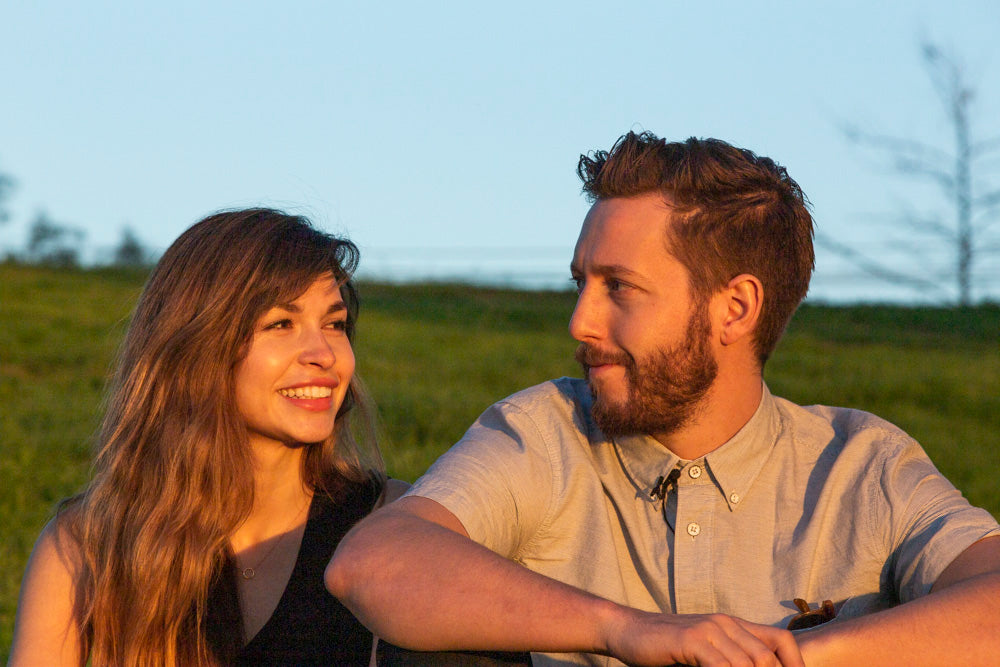
“At the outset, we didn't know how to do anything,” says Natalie. Fortunately, agency experience armed them with the resourcefulness needed to tackle each step as it came, starting with product design and prototyping for their Kickstarter campaign. “We had no idea if anybody would be interested in the product,” says Natalie. “Crowdfunding was a really great way to test the market”.
For Max and Natalie, testing their idea as soon as possible was far more important than getting the product design perfect for launch day. “On our Kickstarter, if you look at the photos it's different from what we actually launched,” Natalie says. They made frequent improvements throughout their Kickstarter campaign and even after it closed, going through "more than a dozen prototypes” to find their final design of stainless steel weights covered in recycled silicon. After surpassing their goal of $40,000 on Kickstarter, Natalie and Max started the initial production for their backers and tweaked designs as they went.
Preparation for successful Shark Tank pitch
Natalie and Max applied to be featured on Shark Tank during the show's tenth season, but just as they were about to book their flights to Los Angeles for the taping, they were dropped from the lineup. “We were super bummed because it's a lot of work,” says Natalie. As fate would have it, they were invited back months later for the next season and chosen to appear during the episode that tennis star, Maria Sharapova, was a guest Shark.
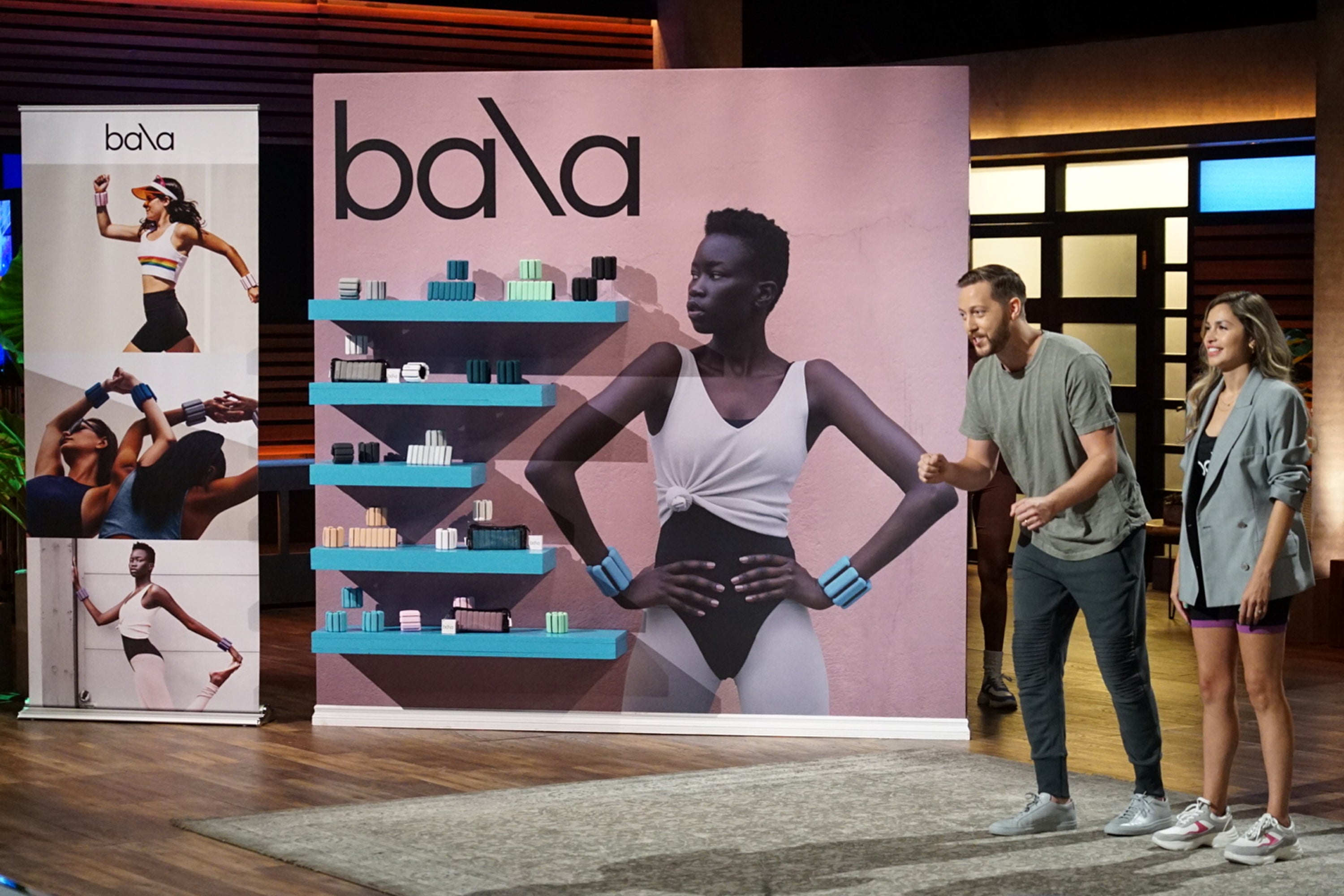
With Maria’s presence, the stakes were raised; Natalie and Max obsessively prepped for their pitch. “We wrote our pitch and practiced it no less than 1000 times,” says Max, “It might be a single word that’s changed just to help the flow and cadence of the pitch.” The couple also mapped out all of the possible scenarios they might face, from no offers to low valuation to royalty deals. They even rewatched every episode and wrote out an exhaustive list of possible questions, along with their answers for each.
The intensive preparation paid off when all of the Sharks pursued an offer. Having reached approximately $2.5 million in lifetime sales since 2018, Natalie and Max accepted an offer of $900,000 from Mark Cuban and Maria Sharapova for a 30% stake in Bala.
Thumb-stopping editorial content in a saturated fitness market
If you’re scrolling Instagram and stumble upon Bala, their content will make you double-tap and double-take. Bala’s imagery doesn't look like most of the content within the fitness industry. Instead, they take a more editorialized and artistic approach with their photography and videos. Erika Holloway, Bala’s brand director and Natalie’s sister, has established a distinct vision and aesthetic for Bala's content—one that is meant to stand out in a sea of sameness.
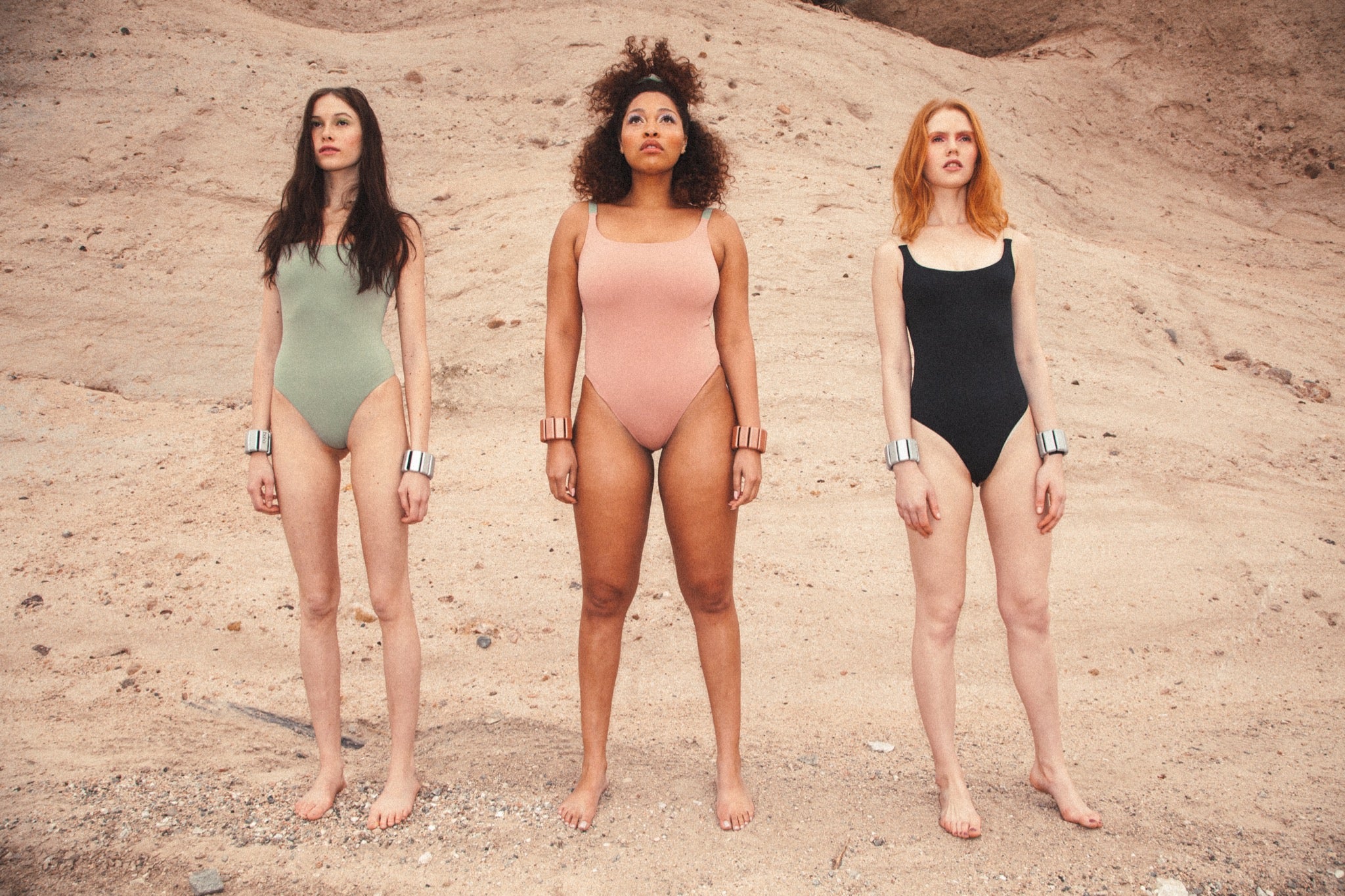
“Bala sits at this interesting intersection between fashion and fitness,” says Max. “We're treating a fitness product as part of your fashionable life.” With desert backdrops, eye-catching accessories, and bold prints, their imagery is unafraid to take risks. That's for good reason. When entering an already saturated industry, the greatest risk is being ignored. “It's been really gratifying with this product to be able to challenge the norms we've all come to expect in the fitness space,” Max shares.
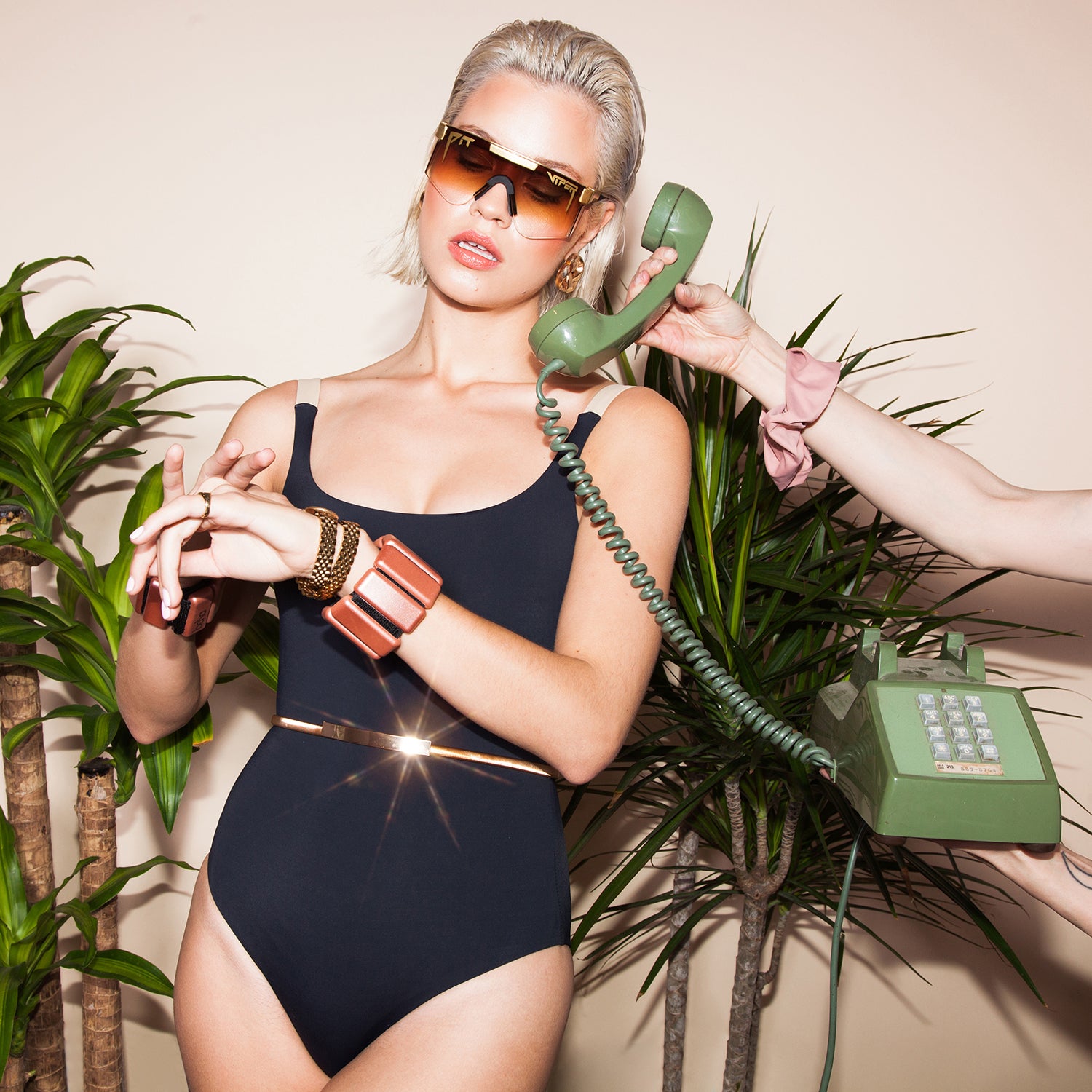
The editorialized nature of Bala’s content has allowed its brand to be easily incorporated into major media outlets. The bold and stylish nature of their press kit makes it attractive for magazines like Vogue, Marie Claire, and Shape to leverage Bala’s images within their feature. Their content has helped to catch the eye of major retail partners as well.
Organic marketing and the power of media coverage
To date, Bala hasn’t invested in paid marketing efforts. Natalie and Max focus most of their energy and effort on reaching out to media outlets, in addition to building their own editorial brand. “We tried to leverage any connection we had,” says Natalie. “We did cold outreach. We'd go through a magazine and look at the editor’s name, find them on Instagram, DM them, see if they wanted a product.”
One of the earliest bits of coverage they received was from Shape Magazine, all thanks to a friend’s introduction to an editor. “Getting a press mention or getting into a known retailer gives you instant credibility,” Max adds. Similar to getting your first job, you have to try to network as much as possible to get the early work experience that can launch your career. “And it's that first domino to fall that kickstarts sales, other retail relationships, and other press mentions,” Max says.

On the retailer side, Natalie and Max use the same scrappy approach, hitting the metaphorical pavement on Linkedin to look for buyers and merchandisers that might be interested in trying out Bala Bangles. A lucky break came when Free People discovered their content on Instagram and reached out with a wholesale opportunity. Natalie says that the key has been getting the product into people's hands, often through free gifts and samples. The early coverage Bala Bangles received was essential, as it helped them build stronger relationships with even bigger retailers, and things snowballed from there.
Natalie and Max also credit trade shows for building relationships with buyers—though, with due caution. To ensure profitability and better analysis of their investments, Natalie and Max keep a spreadsheet that tracks every time a sale comes in from a trade show. These details ensure the team is spending their time and money wisely, and that the upfront costs of attending a show are worth the investment.
Adjusting to a surge in demand during COVID-19
Bala’s episode of Shark Tank premiered on February 28th, just shortly prior to many of the quarantine measures put into place to curb COVID-19. “We had this one-two punch of the exposure associated with Shark Tank, and then interest in fitness products,” shares Max. With the sharp increase in demand, Bala Bangles were quickly sold out. Luckily, Bala's established manufacturing relationships enabled them to take preorders, so they could continue managing their growth and stay transparent with their customers while navigating the newfound fulfillment challenges.
The team was quick to offer Instagram Live workouts with professional trainers, along with fast-tracking workout videos that feature their products but can be completed without them as well. “We've put those up for free on our website, giving people an outlet regardless if they have Bala products or not,” says Max. Offering free virtual workout classes and tutorials helped Bala to offer a sense of normalcy during quarantine, shine a spotlight on trainers, and build their community.
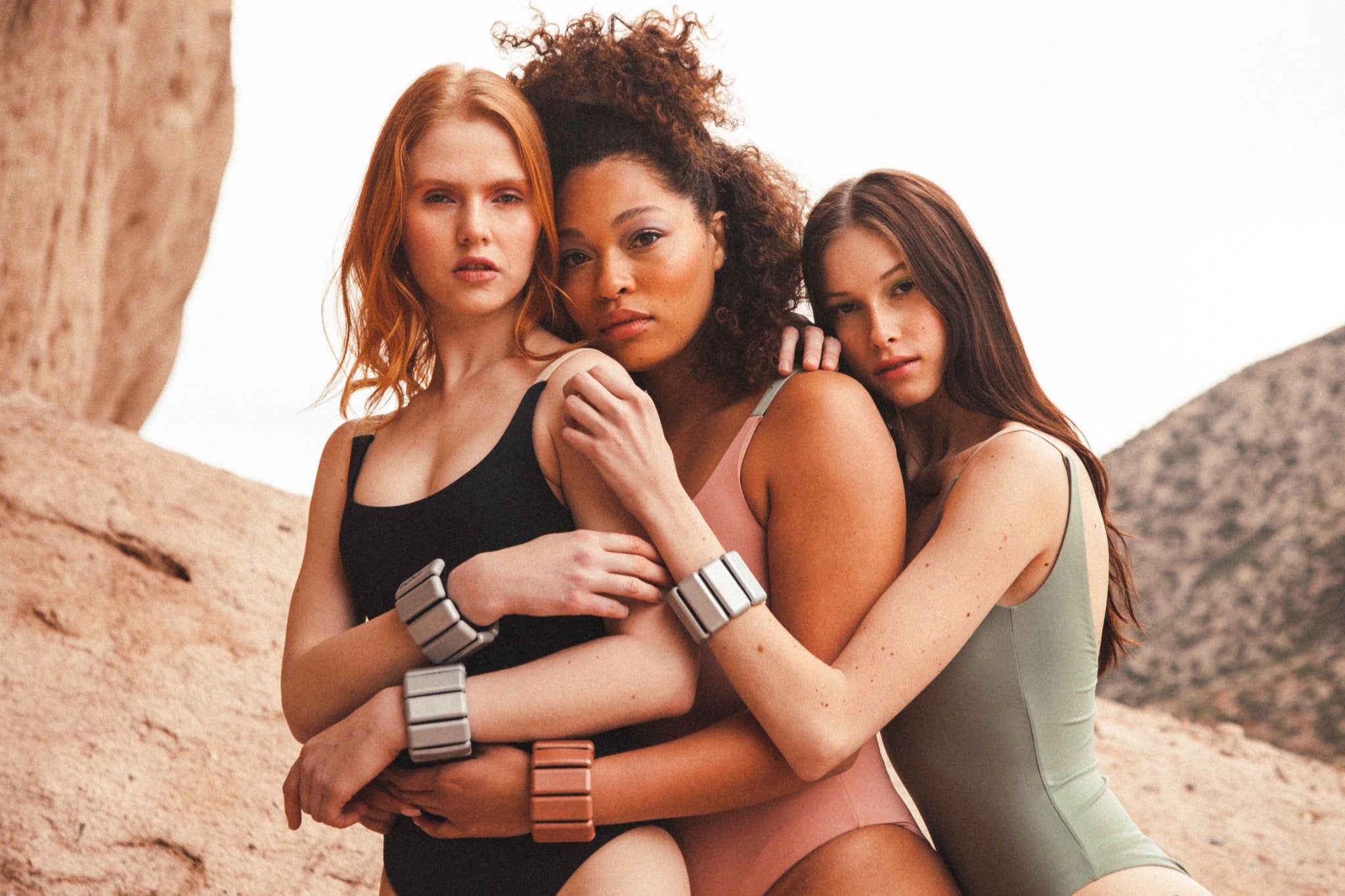
Throughout these tumultuous times, the team has remained in constant contact with their manufacturing partner to meet demand. The key to managing their sales in the current climate is being transparent with their supplier and their customers. “We try to be transparent with everyone about the lead times,” says Max, “Everything is happening more slowly, but because we're armed with the information about those timelines, we're able to communicate with customers about when a pre-order is likely to come through.”
As far as they've come, and as thrilling as the ride has been so far, Natalie and Max confess to being even more excited about the future. The somewhat stagnant state of the fitness industry, as they see it, is reason enough to diversify their offering. “We are actively trying to bring the design to fitness products and accessories that might not otherwise have seen much innovation in decades,” says Max.




